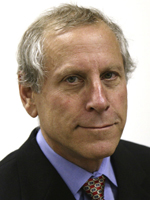
PITTSFIELD, Massachusetts — In early 1863, a friend discussed with Abraham Lincoln the idea of restoring European Jewry to its ancient homeland in Palestine. Lincoln agreed that the vision of a Jewish state in the Holy Land merited consideration. “I myself have regard for the Jews,” he is reported to have said. “My chiropodist is a Jew, and he has so many times ‘put me on my feet’ that I would have no objection to giving his countrymen ‘a leg up.’”
Lincoln was referring to Isachar Zacharie, his foot doctor and confidante. Zacharie’s relationship with Lincoln was complex, but two things are clear: first, Zacharie had Lincoln’s confidence and, secondly, he represented American Jewry in Lincoln’s eyes.
Born in England, Zacharie never attended college or medical school but was trained in chiropody and called himself a doctor. Zacharie immigrated to America in the mid-1840s and worked in several cities before settling in Washington, D. C. in 1862. Before the machine manufacture of uniformly sized shoes was possible, many individuals suffered corns and calluses caused by ill-fitting handmade footwear. Zacharie’s reputation for treating foot pain earned him Secretary of War Edwin M. Stanton, Secretary of State William Henry Seward and, eventually, President Lincoln as clients.
While Zacharie worked on the President’s feet they shared their personal views. Eventually, they became intimate friends. Lincoln sought Zacharie’s opinion on matters of state, especially Jewish affairs. By the end of 1862, Lincoln asked Zacharie to travel to New Orleans, which had been captured by Union troops, as his personal eyes and ears. Zacharie was to mingle with the Southern white population and assess their sentiments toward General Nathaniel P. Banks, commander of the Department of the Gulf, which included New Orleans, and toward Union policies in general.
Zacharie recruited a cadre of peddlers to send back information on such vital subjects as Confederate troop movements. Zacharie did his own investigating as well, meeting with local people to gauge their feelings toward the Union (and especially toward Union soldiers, some of whom were African-Americans), and watching out for contraband shipments. He did all he could to help New Orleans’ Jews withstand the shortages of food and medication caused by the war. He also advised Lincoln to rescind General Ulysses S. Grant’s infamous expulsion of Jews from the Department of the Tennessee.
Recognizing Zacharie’s natural gift for diplomacy, in mid-1863 General Banks enlisted Zacharie to help open lines of communication with Confederate leaders that might lead to a negotiated settlement of the war. After establishing contacts in Richmond (the Confederate capital), Zacharie reported to Lincoln and Seward on the opportunity to initiate talks. Seward was enthusiastic but other Cabinet members were strongly opposed. Lincoln grabbed the initiative and in the fall of 1863 personally issued Zacharie a pass to the Confederacy. In Richmond, Zacharie met with Confederate Secretary of State Judah P. Benjamin (like Zacharie, a Jew) and other Confederate cabinet officers. Zacharie reported that the Confederate leaders agreed to have General Banks represent the Union in peace talks, but again the rest of the Union cabinet rejected the idea of negotiations with the Confederates.
There is no archival copy of Zacharie’s reports, but the New York Herald reported that Zacharie proposed that the Federal government pardon the Confederates and transport them to Mexico, where they would expel the French-supported government of Emperor Maximillian and proclaim Jefferson Davis as President of Mexico. This accomplished, the Southern states would then return to the Union, restoring peace. Whether this account is true cannot be established, and whether such a remarkable idea would be acceptable to Unionists and Confederates alike –much less the Mexicans— is highly speculative. In any event, nothing came of Zacharie’s peace initiative.
Eventually, Zacharie gave up his role as peacemaker and returned to work as a chiropodist, opening a new office with a partner in Philadelphia. After briefly flirting with the idea of backing Banks for President in 1864, Zacharie campaigned for Lincoln, particularly urging his fellow Jews to re-elect him. Continuing to use his influence with Lincoln to help his co-religionists, Zacharie convinced the President to pardon and release a South Carolina Confederate, Goodman L. Mordecai, from a Union prison. Zacharie then took Mordecai to the White House to personally thank the President.
A few months later, John Wilkes Booth assassinated Lincoln and Zacharie lost his White House access. He continued to back General Banks’ political career and, in 1872, with Banks’ support, applied to Congress for a payment of $45,000 for having treated the feet of 15,000 Union soldiers. The anti-Republican press skewered Zacharie as Lincoln’s conniving “toe-nail trimmer” who had wanted to enrich himself by creating “a corps of corn doctors, or foot soldiers to put the army in marching order.” Zacharie insisted only that he be paid for the value of the services he performed. A congressional claims committee rejected Zacharie’s petition. He returned to England sometime in 1874, where he resided until his death in 1897.
Whatever his political opponents may have thought of the chiropodist, Abraham Lincoln trusted Zacharie. The New York World wrote that Zacharie “enjoyed Mr. Lincoln’s confidence more than any other private individual . . . [and was] perhaps the most favored family visitor at the White House.”
*
Michael Feldberg,PhD, is executive director of the George Washington Institute for Religious Freedom (www.gwirf.org)
McFarland is publishing a full length book on Zacharie, “Lincoln’s Jewish Spy,” due July 2020